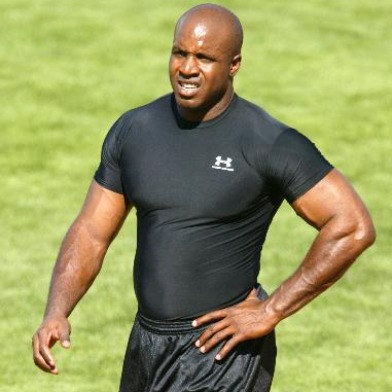 A federal judge in San Francisco has kept in place home-run champion Barry Bonds’ conviction on a charge of obstructing justice by giving evasive or misleading testimony to a grand jury in 2003.
A federal judge in San Francisco has kept in place home-run champion Barry Bonds’ conviction on a charge of obstructing justice by giving evasive or misleading testimony to a grand jury in 2003.
U.S. District Judge Susan Illston late Friday turned down Bonds’ bid for either an acquittal or a new trial on the obstruction count.
Illston wrote that the record of Bonds’ three-week trial in March and April “supports a finding, beyond a reasonable doubt….that defendant endeavored to obstruct the grand jury.”
The obstruction charge was Bonds’ sole conviction in the trial. The jury deadlocked on three other counts in which the former San Francisco Giants slugger was accused of lying to the grand jury.
Prosecutors have not announced whether they will retry Bonds on those counts.
The 2003 grand jury was investigating the distribution of steroids and other performance-enhancing drugs to baseball players and other athletes by the Bay Area Laboratory Co-Operative, or BALCO.
The obstruction charge concerned Bonds’ answer to a prosecutor’s question about whether Bonds’ trainer, Greg Anderson, had ever given him anything that required a syringe to inject himself with.
Bonds gave a rambling response in which he referred to himself as a “celebrity child” of a famous ballplayer father and said, “I just don’t get into other people’s business because of my father’s situation, you see.”
Bonds’ lawyers argued that the response shouldn’t be considered a crime because the outfielder answered a similar question more directly less than two minutes later by denying that Anderson had ever given him a liquid to inject himself with.
But Illston wrote, “The conviction can be upheld if defendant endeavored to obstruct justice, even if he did not succeed.”
The judge said that for purposes of an obstruction conviction, an evasive answer is not necessarily legally erased by a later direct answer.
Referring to other points in the testimony, she added, “Here, defendant repeatedly provided nonresponsive answers to questions about whether Anderson had ever provided him with injectables.”
Bonds, 47, who set Major League Baseball’s career home-run record while playing with the Giants, can appeal the ruling to the 9th U.S. Circuit Court of Appeals.
The three counts on which the trial jury could not reach a verdict were charges that Bonds lied when he denied that he had ever been injected by Anderson and that he had ever knowingly taken steroids or human growth hormone.
Julia Cheever, Bay City News
Want more news, sent to your inbox every day? Then how about subscribing to our email newsletter? Here’s why we think you should. Come on, give it a try.









